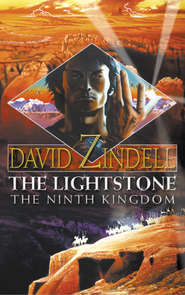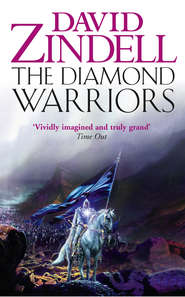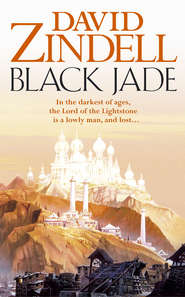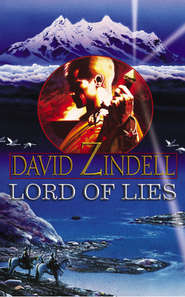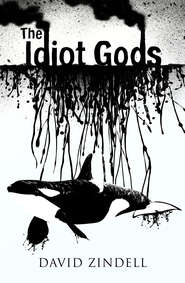По всем вопросам обращайтесь на: info@litportal.ru
(©) 2003-2024.
✖
War in Heaven
Автор
Год написания книги
2018
Настройки чтения
Размер шрифта
Высота строк
Поля
— saying of the gnostics
Life is the ability of matter to trap light.
— saying of the eschatologists
In mapping his pathways from Sheydveg to Neverness, Danlo had a choice between two conflicting purposes. Since his mission cried out for speed, he might have fallen from star to star by the shortest pathway, which would have taken him to Arcite, Darkmoon and Darghin, and thence to Fravashing and Silvaplana before falling on to Qallar and Neverness. But his safety – and Demothi Bede’s – was important, too; dead ambassadors stop no wars. Since the Ringists were already at war, a lone lightship falling suddenly out of the manifold near some hostile world might find itself attacked by ten others. Certainly, therefore, Danlo would best avoid such worlds, for Ringist pilots might be lying in wait along such an obvious pathway. It would be safest for him to make a great circle through the Fallaways, past the great red sun of the Elidi and then on to Flewelling, the Nave, Simoom and Catava. Safest, truly, but such a journey would take long, long. In the end, he decided upon the shorter pathway. Once, his friends and fellow pilots had called him Danlo the Wild. But he was not wild beyond the cooling draughts of reason, and so he began his journey with a falling off towards Agathange instead of Arcite and planned to approach Neverness by way of Kenshin or Tyr.
His journey across the stars was both the easiest and hardest he had ever made. Easy, because he fenestered through the most ancient and well-mapped part of the Fallaways, and the spaces he crossed were almost as familiar to him as the snowy islands of his childhood. If Arrio Verjin was right and a Danladi wave would soon rip through the Fallaways and turn the manifold into a raging black sea, Danlo saw no sign of this. The manifold before him – the emerald invariant spaces and Gallivare sets – was no more dangerous than a forest brook. He passed well-known stars, Baran Luz and Pilisi, a red giant almost as lovely to look upon as the Eye of Ursola. As always, he marvelled at the colours, the hot blue stars, the red and orange, and those loveliest of lights whose tones shone more as pale rose or golden yellow. This, he thought, was the glory of being a pilot. To behold a star with such closeness as if it were a bright red apple hanging from a tree was very different from standing on an icy world and looking up at the sky. Then, at night, the stars hung from the heavens like a million tiny jewels. And they were almost all white. From far away, the stars were like white diamonds because the human eye’s faint-light nerve cells couldn’t respond to colour, while the colour receptors couldn’t feel the faint touch of starlight. Once, as a child, he had hoped to see the stars just as they really were. And some day, he thought, he still might look out at the galaxies with his eyes truly open and naked to the universe. But now it was very good just to gaze at the colours of Cohila Luz or Tur Tupeng through the clearness of his lightship’s windows.
The hard part of this journey came from his continual surveillance of the manifold. For many days, he studied this space beneath space with the intensity of a tyard bird watching a snowfield for the slightest sign of a worm. Always, within a well-defined region about him known as a Lavi neighbourhood, the manifold rippled with undulations, most as faint as a whisper of wind upon a starlit sea. These he ignored, indeed, scarcely even noticed. What he sought – and hoped not to find – were the tells of a lightship, those violet traceries and luminous streaks made when a ship perturbed the manifold. Just as he passed by a spinning thickspace near the Valeska Double, he thought that he descried such tells. For the count of ten heartbeats, he didn’t breathe. But upon deeper scrutiny, it proved to be only the reflection of the Snowy Owl’s own tells, an unusual phenomenon when the manifold flattens out like a clear mountain lake. Four more times between Darkmoon and Silvaplana, Danlo was to detect such reflections, and each time he felt his heart in his throat and the blood pounding behind his eyes.
‘If you continue like this. Pilot, you’ll kill yourself.’
This came from Demothi Bede, who temporarily crowded into the pit of the Snowy Owl. No pilot, of course, while falling through the manifold would permit such a violation of his sacred space by another. And very few would share this sanctum of the soul at any time. But in order to rest, Danlo had fallen out into the quiet of realspace near Andulka. And because he loved company – sometimes – he didn’t mind talking with Demothi Bede. And so after he had finished sleeping, he had invited this crusty old lord inside the very brain of his ship.
‘But I have just slept … so deeply,’ Danlo said with a yawn.
‘But not for long. Six hours of sleep you’ve had in the last sixty, by my count.’
‘I did not know … that you were keeping count.’
‘There’s little else for me to do,’ Demothi said. Although his face was as old and forbidding-looking as a cratered moon, when he spoke there was a flash of good white teeth and true compassion that Danlo thought endearing.
‘I cannot sleep safely in the manifold,’ Danlo said. ‘And I cannot risk too many exits into realspace.’
In truth, the most dangerous part of their journey, as far as being detected by other ships, lay in opening windows to and from realspace. Then, when the Snowy Owl’s spacetime engines tore through the luminous tapestry of the manifold, there was always a release of light. Through telescopes or the naked human eye, other pilots could watch the blackness for flashes of light and so mark the coming or passing of a lightship.
‘But you could sleep longer,’ Demothi said.
‘If only I did not have to sleep at all.’
As Danlo said this, he glanced at the Ede hologram floating in the darkness. Nikolos Daru Ede, as a program running inside his devotionary computer, never slept. And he never kept silent, either, if he perceived any threat to his continued existence.
‘The Lord Demothi is right, you know,’ the Ede imago said. ‘If you exhaust yourself, you might map us into a collapsing torison space.’
Danlo smiled at this because the Ede program had learned enough mathematics of the manifold to speak almost as if he were a pilot or a real human being.
‘And what will you do if we cross pathways with another lightship? If you’re too tired to think?’
‘I have never been that tired,’ Danlo said. Once, as a boy out hunting in the wild, he had stood awake for three days by a hole cut into the sea’s ice – awake and waiting with his harpoon for a seal to appear.
‘This machine asks a good question, though,’ Demothi Bede said, pointing at the imago. ‘What will we do if we cross pathways with a Neverness lightship?’
‘Or ten ships?’ the Ede imago asked.
‘How … could I know?’
‘You don’t know what you’d do if ten lightships fell upon us?’
‘No, truly I do not,’ Danlo said. And then he smiled because sometimes he liked playing games with the Ede imago. ‘But part of the pilots’ art is knowing what to do … when you do not know what to do.’
‘But shouldn’t we at least agree upon a strategy?’ Demothi Bede broke in. ‘It seems that if we’re discovered, we’ll have only two choices: to flee into the stars, or to declare ourselves as ambassadors and trust we’ll be escorted to Neverness.’
‘Have you so great a trust of others, then?’ Danlo asked.
‘We’re speaking of pilots of the Order, not barbarians.’
‘But these pilots are also Ringists,’ Danlo said. ‘And they are at war with the Fellowship.’
Here Demothi Bede sucked in a breath with such force that his lungs fairly rattled. He said, ‘We don’t know that with certainty. It might be that the ambush near Ulladulla was an accident or only the belligerence of those five pilots who committed this massacre.’
‘No,’ Danlo said, closing his eyes. ‘It was no accident.’
‘Then you’ve decided to flee?’
‘I have decided nothing.’
‘But how will you make your decision?’
‘That will depend on many things: the configuration of the stars, how many ships we meet and who their pilots are.’ And, Danlo thought, on the pattern of the N-set waves rippling through the manifold or the whispers that he heard in the solar wind if they had fallen out near a star.
Now the Ede imago spoke again, and it was his turn to play with Danlo. ‘Do you really think you could escape ten lightships?’
‘Why not?’
‘On your journey to Tannahill, Sivan wi Mawi Sarkissian pursued you across the entire Vild.’
‘That is true,’ Danlo said. He remembered how Sivan, in his ship the Red Dragon, for a distance of twenty thousand light years, had hovered ghostlike always just at the radius of convergence in the same neighbourhood of space as the Snowy Owl. He remembered, too, Sivan’s passenger (and master), Malaclypse Redring of Qallar, the warrior-poet who hoped that Danlo would lead him to his father. The warrior-poets had a new rule, which was to kill all potential gods, and so Malaclypse had fallen halfway across the galaxy to find Mallory Ringess.
‘Well, Pilot?’
‘There is no pilot in Neverness the equal of Sivan wi Mawi Sarkissian,’ Danlo said.
‘Are you certain of that?’
Danlo, of course, was not certain, but to reassure the Ede imago, he said, ‘The best pilots went with the Sonderval to the Vild.’
‘And the very best of these is here before you,’ Demothi Bede said to the Ede imago. One of the old lord’s virtues was that he would defend a pilot of his Order against anyone, especially a glowing hologram projected out of a computer. ‘And isn’t it possible, Pilot, that you learned new aspects of your art in being pursued by Sivan?’
‘It is possible,’ Danlo said with a smile.
‘Then it’s clear that if the Ringists should surprise us, we’ll have to trust to your judgement and your art. But now, we should leave you alone so that you may take a few hours more sleep.’
‘No,’ Danlo said. ‘Now we must open a window and journey on – and pray that Arrio Verjin’s Danladi wave doesn’t smash through the manifold just as we are making a mapping.’
And so the Snowy Owl fell on past Aquene, all aflame like a plasma torch, and then entered into the spaces of the alien worlds of Darghin and Fravashing. During this time of haste and sleeplessness, Danlo saw no sign of an approaching Danladi wave or another lightship. But he never ceased the searching of his eyes or his deeper mathematical senses. And deeper still burned memories that lent urgency to his return to Neverness. He could never forget his people, the Alaloi, and how they were slowly dying from an incurable disease. Incurable, truly, by any known medicines or technologies, and yet it might be that Danlo carried the cure inside himself like an elixir of light. It would be terrible, he thought, if he found the secret of this cure only to arrive home too late.
Of course the shaida disease called ‘the slow evil’ was not the only threat to the Alaloi tribe’s survival, nor were they the only people on Icefall exposed to sudden doom. If war came to Neverness, the entire city – and much of the planet – might be destroyed by hydrogen bombs. And Bertram Jaspari and his fleet of Iviomil fanatics might be falling towards Neverness at that very moment. On Tannahill, this prince of the Old Church Architects had subtly threatened to end the Ringism abomination and cleanse the galaxy of all would-be gods. With their great star-killing engine called a morrashar, the Iviomils certainly wielded the means to destroy the Star of Neverness – as they already had the great red sun of the Narain people far across the Vild. The gods, too, might destroy all space itself in the stars near Neverness, by design or perhaps only by accident of the vast war that they waged across the heavens. It was said that the Silicon God’s deep programs prevented him from directly harming human beings. But Danlo took little solace from this fact. The Silicon God, like any other god, was certainly clever enough to find a thousand ways to menace humanity indirectly. And even if no god or bomb or star-killing machine ever touched Neverness, there was always the malignant light of Merripen’s Star. This supernova had exploded nearly thirty years before, and for all that time a wavefront of radiation had fallen outwards across the galaxy. Soon its terrible energies would fall upon Neverness and bathe all of Icefall in a shower of death. Or life. In truth, no one knew how intense its radiation would be, nor if the Golden Ring growing above Icefall’s atmosphere would simply absorb this cosmic light and burst into a new phase of its evolution. Sometimes, in the darkest wormholes of the manifold, Danlo prayed for this new life, just as he prayed for his people. But sometimes his words seemed only words, no more potent against the forces of the universe than a whisper cast into a winter wind.







